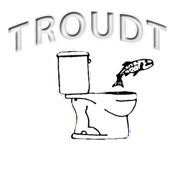Backflow Prevention: Backflow Testing and Repair 
Stopping Water Contamination
Backflow testing and backflow prevention is becoming more important all the time.
These days, we all expect our water to be clean and safe. And generally, it is...until a water main bursts or some other unexpected event creates contamination.
Backflow testing and repair is the first step in backflow prevention. This helps keep our water safe to drink and use for other household purposes.
Eric Troudt of Troudt Plumbing, Greeley is a Certified Backflow Tester with the (ASSE) American Society of Sanitary Engineering. That means we are a certified backflow repair company, qualified to test, repair, and install backflow assemblies. Troudt Plumbing also provides inspections.
We can ensure a safely working backflow preventer for Greeley businesses. In fact, we'll travel to anywhere in Northern Colorado or Southern Wyoming to help you with backflow preventer testing.
Yes, it's that important! (Here are some examples of what can happen when you don't have backflow prevention in place.)
Water flowing from its intended direction can sometimes become reversed, and that's backflow. This means the water is flowing in the opposite direction in the pipes or plumbing system. This can lead to contaminated drinking water. And this, of course, can cause public health issues.
When a cross-connection (any connection to the drinking water system) introduces pesticides, fertilizers, used water, or any other contaminant into the water, that's backflow.
Under normal conditions, water flows out of the distribution system under pressure. When a cross-connection occurs, the drop in water pressure can cause the flow to reverse. That's when harmful substances may enter the public water system. Water main breaks or local firefighting – events that can cause water pressure fluctuations—are often a cause of backflow.
Cross-connections can either be eliminated or protected by an air gap or mechanical backflow preventer. We can further help eliminate or prevent cross-connections with backflow testing and repair.
Two Types of Backflow
There are two different types of backflow. Backpressure occurs when your home or business water system is at a higher pressure than the supply water systems. This allows undesirable substances to be “pushed” back into the municipal water supply system. Backsiphonage occurs when negative or reduced pressure exists in the municipal supply system. This allows water from your home or business to be “drawn” into the public water supply.
According to the city of Greeley, some sources of cross-connection contamination are:
- Irrigation systems
- Fertilizer injection systems
- Hoses connected to chemical spray bottles
- Chemicals used in water beds, hot tubs, swimming pools, water features, aquariums, fountains, in-home water treatment systems, solar heating systems, and swamp coolers
- Commercial and industrial cooling systems, boilers, solvents and chemicals used in manufacturing processes, liquid storage tanks, waste disposal systems, fire sprinkler systems
The Solution: A Backflow Preventer
Backflow preventers are mechanical plumbing devices that once installed in a plumbing system prevent water from flowing backward in the system.
All devices should be tested regularly to make sure they are operating properly. After all, these devices are mechanical; they contain seals, springs and other moving parts which eventually wear out and fail. In some cases, they can even be bypassed. It’s important to be certain your preventer is functioning properly.
Because contaminated water is a serious health problem, backflow prevention is a must.
Why does the customer have to pay for and install the backflow preventer?
According to the city of Greeley, a backflow preventer helps protect the public water supply. It controls possible hazards in a customer's plumbing system. But once the water goes beyond the meter, water quality could be altered. The actual or potential cross-connection belongs to the property owner, not to regulatory officials or the water utility.
The water utility does not want the water back, nor do water customers want to purchase used water. Simply put, anyone who creates the cross-connection (actual or potential) should have a backflow preventer installation, and then keep it maintained.
Backflow Prevention Is a Necessity
Certainly, contact a plumber who is certified to assess the problem if you believe you have a cross-connection. We recommended that you have an annual maintenance check up by a certified plumber. He can alert you to any potential problems and make the needed repairs.
A backflow prevention assembly is necessary for all residential irrigation systems in Greeley. Note that you are required to have a copy of a certified backflow tester's report to obtain final approval for a sprinkler system permit.
All commercial and industrial customers must have backflow prevention assemblies installed on water service lines, fire sprinkler systems, and irrigation systems.
Troudt Plumbing is a Registered Fire Suppression System Contractor for Backflow Testing with the Colorado Division of Fire Prevention and Control.
Contact us today for a consultation and help keep our drinking water safe. 
What is backflow testing? Read about it here.
